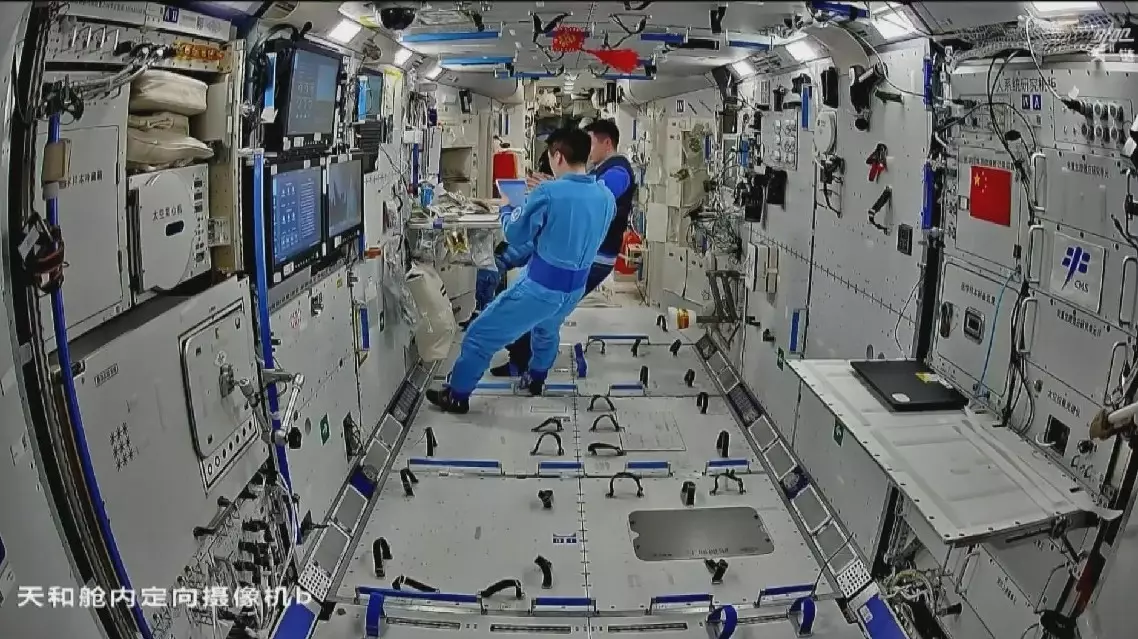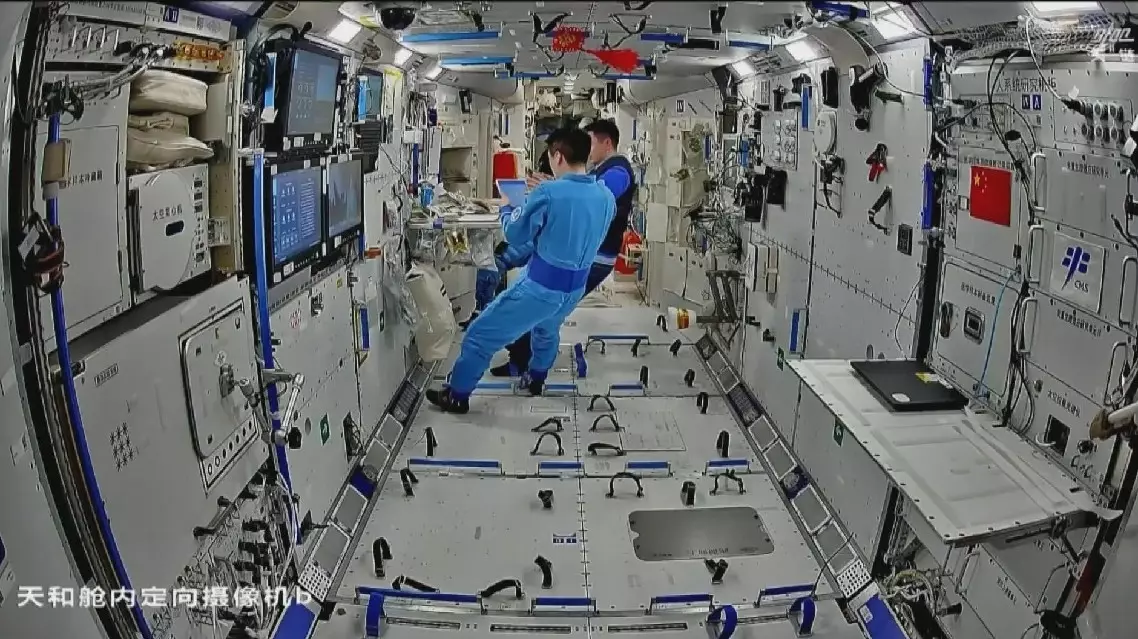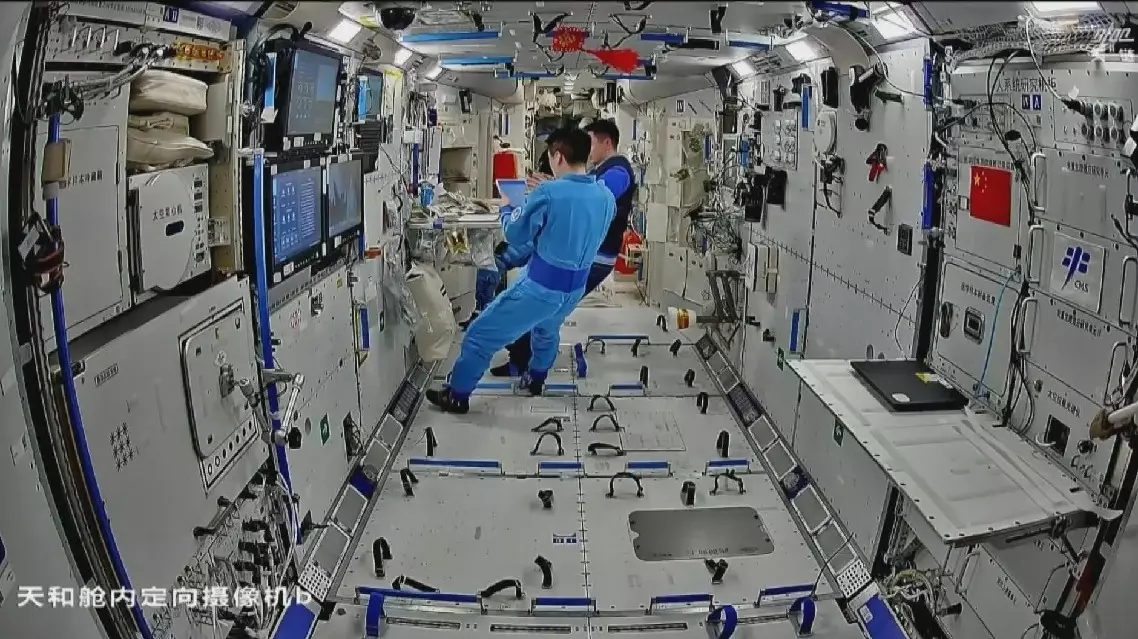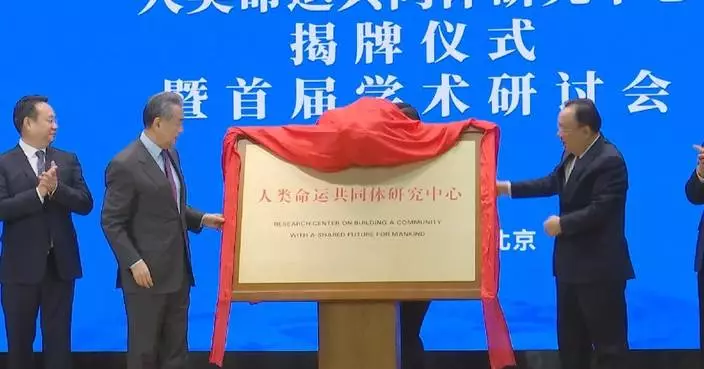The three astronauts of China's Shenzhou-18 crewed spaceflight mission have returned to Earth with scientific materials from the Tiangong space station.
Carrying astronauts Ye Guangfu, Li Cong and Li Guangsu, the return capsule touched down at the Dongfeng landing site in north China's Inner Mongolia Autonomous Region on Monday morning.
China launched the Shenzhou-18 manned spaceship on April 25, 2024. During their six-month mission, the Shenzhou-18 crew conducted some 90 experiments and tests in the fields of material science, life science, medicine, space technology and the basic physics in microgravity.
The experimental materials that they brought back may help unlock answers to significant scientific questions and aid future space missions, according to Zhang Wei, a professor at the Technology and Engineering Center for Space Utilization, Chinese Academy of Sciences.
"The samples returning with the Shenzhou-18 mission include five types of life science specimens and over 20 samples from material science projects. Among them, around a dozen were exposed to the external environment of the space station, such as special materials like solid lubricants, to observe their reactions under such conditions. Additionally, samples from the container-free material cabinet and high-temperature material cabinet will also be brought back, including some crystal materials and metal materials. These will undergo further research on the ground," Zhang said.
During their mission, the Shenzhou-18 trio kept a close watch on a tank containing zebrafish that subsided in an enclosed miniature ecosystem, forming a mutually sustainable relationship with an aquatic plant called hornwort.
The experiment represented a breakthrough in the field of raising vertebrates in space and even allowed the astronauts to observe the behavioral differences of the fish under space conditions.
"The zebrafish thrived for over 40 days, during which we observed unique movement patterns in microgravity. For instance, they sometimes swam belly-up, displaying behaviors not seen on Earth. Besides, the small ecosystem established itself more quickly in space than it typically would on the ground. By uncovering these basic laws, we have laid the groundwork for future studies on three-element ecosystems and terrestrial-based systems," Zhang said.
According to the professor, China's space station has opened new doors to scientific inquiry, from physics to biology.
"The goal of space-based research is to explore the fundamental laws governing matter and life under extreme conditions. So our various experiments on the space station are mainly, for example, to examine the biological effects of microgravity and radiation in space on living creatures at the molecular, cellular, tissue, organ, individual and group levels and see what we can do to mitigate these effects. These studies provide basic knowledge about life phenomena and laws. The other object is the basic laws of matter motion, including the characteristics of fluid flow in space," Zhang said.

Shenzhou-18 astronauts return to Earth with scientific materials

Shenzhou-18 astronauts return to Earth with scientific materials

Shenzhou-18 astronauts return to Earth with scientific materials









